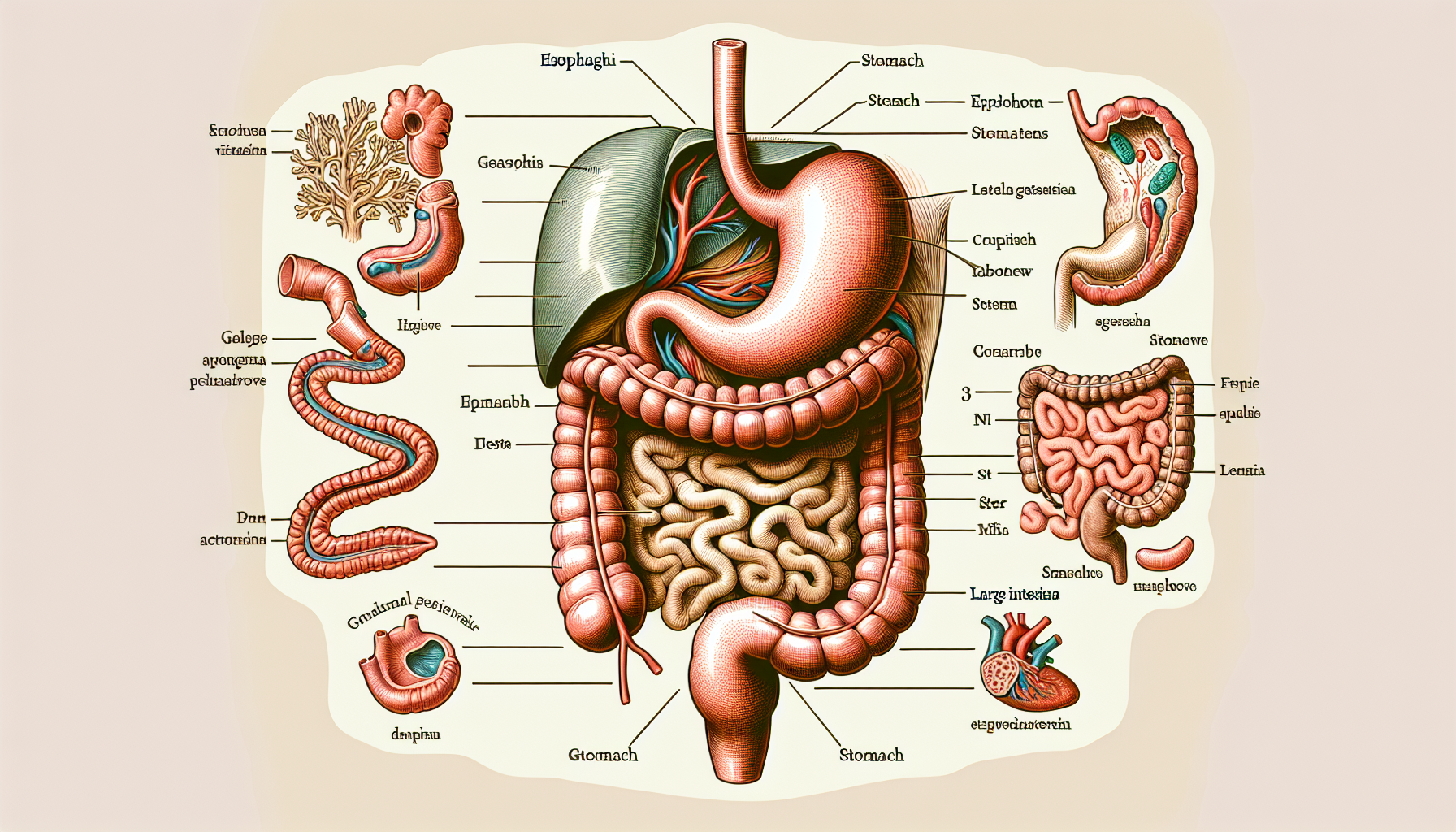Food intolerances are a common issue that can cause a myriad of digestive symptoms, ranging from mild discomfort to severe disruption of daily life. Unlike food allergies, which involve the immune system and can cause life-threatening reactions, food intolerances primarily affect digestion and are often related to an inability to process certain foods properly. This article aims to provide a comprehensive look at food intolerances, their management, and how addressing them can lead to better digestive health.
Understanding Food Intolerances
Food intolerances occur when the digestive system is unable to properly break down certain components of foods, leading to digestive distress. This can be due to enzyme deficiencies, sensitivities to food additives, or reactions to naturally occurring chemicals in foods. Common culprits include lactose, found in dairy products; gluten, found in wheat, barley, and rye; and certain types of carbohydrates known as FODMAPs.
Symptoms of food intolerance can vary widely but often include bloating, gas, diarrhea, constipation, and abdominal pain. It’s important to note that these symptoms can also be indicative of other digestive issues, so it’s crucial to consult with a healthcare professional for an accurate diagnosis. For those navigating the complexities of food intolerances, understanding the role of the gut microbiome’s in food intolerance can offer additional insight into how these conditions develop and how they can be managed.
Identifying Your Food Intolerances
The first step in managing food intolerances is identifying the foods that cause problems. This can be achieved through an elimination diet, where suspected foods are removed from the diet for a period, then gradually reintroduced while monitoring symptoms. This method can be effective but requires patience and strict adherence to dietary changes.
Another approach is to undergo medical testing, such as hydrogen breath tests for lactose intolerance or fructose malabsorption, or blood tests for gluten sensitivity. While these tests can provide clarity, they are not always definitive, and a combination of testing and dietary experimentation may be necessary.
Management Strategies
Once food intolerances have been identified, the key to management is avoiding or limiting the problematic foods. For example, those with lactose intolerance may benefit from lactose-free dairy products or lactase enzyme supplements. Similarly, people with gluten sensitivity will need to adhere to a gluten-free diet.
Incorporating digestive aids, such as probiotics and prebiotics, can support digestive health and may help alleviate some symptoms associated with food intolerances. Moreover, understanding the undeniable link between dietary fiber and digestive health can guide individuals in selecting high-fiber foods that are well-tolerated and beneficial for gut health.
The Role of CBD in Managing Food Intolerances
Recent interest in the therapeutic potential of cannabidiol (CBD) has extended to the realm of digestive health. While research is ongoing, preliminary studies suggest that CBD may possess anti-inflammatory properties and could play a role in managing symptoms related to food intolerances. For those interested in exploring this avenue, a foundational understanding of CBD can be found at CBD 101.
It is advisable to discuss the use of CBD with a healthcare provider, as it may interact with other medications and is not a replacement for traditional treatment methods.
Lifestyle and Dietary Adjustments
In addition to avoiding trigger foods and considering supplements, making broader lifestyle and dietary adjustments can enhance the management of food intolerances. Regular exercise, adequate sleep, and stress reduction techniques can all positively impact digestive health.
Adopting a holistic approach to diet is also beneficial. Eating smaller, more frequent meals can help reduce the burden on the digestive system, and cooking methods that enhance digestibility, such as steaming or poaching, may also be helpful.
External Resources for Further Information
To deepen your understanding of food intolerances and how to manage them, consider the following niche resources:
- The Food Intolerance Network, which provides detailed information on various food intolerances, including research and support for individuals affected by them.
- The Monash University FODMAP Diet, which offers comprehensive resources for following a low FODMAP diet, complete with app guides and food lists.
- The Celiac Disease Foundation, for those with gluten sensitivities or celiac disease, offering guidance on gluten-free living and the latest research findings.
Linking Food Intolerances to Overall Wellbeing
It’s important to recognize that managing food intolerances is not just about improving digestive comfort; it’s also about enhancing overall wellbeing. The gut plays a crucial role in immunity, mental health, and chronic disease prevention. Therefore, addressing food intolerances can have far-reaching benefits beyond the digestive system. For instance, the link between gut health and immunity underscores the importance of a well-functioning digestive system for maintaining a robust immune response.
Conclusion
Identifying and managing food intolerances requires a combination of self-awareness, medical guidance, and dietary adjustments. By taking a proactive approach to understand and address these intolerances, individuals can significantly improve their digestive health and overall quality of life. Remember that while the journey to managing food intolerances can be challenging, the benefits of a happier, healthier gut are well worth the effort.



